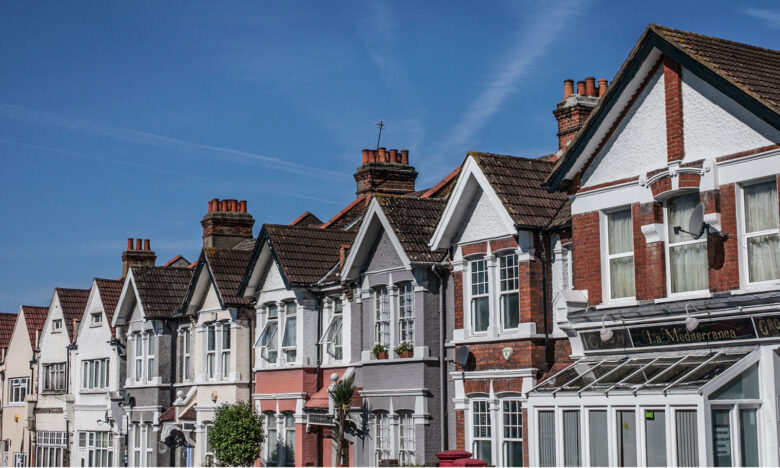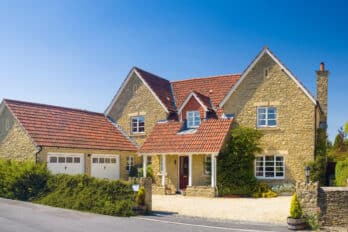
The Roof of My Top-Floor Flat Is Leaking but the Freeholder Refuses to Repair It – What Do I Do?
Leaking roofs are one of the most common problems in buildings of flats. But the complexity of agreements and responsibilities between freeholders and leaseholders means it’s not always clear who should deal with the issue or cover the costs. In most cases, the repair of structural problems, such as leaking roofs, is your freeholder’s responsibility. But what do you do if they refuse to take action?
Fortunately, you can usually force your freeholder into repairing your leaking roof. Often, the threat of legal action alone is enough to encourage them to act quickly. You should seek advice from a legal expert and a surveyor to find out what your rights are and how you can exercise them. That way, you can eliminate the risk of being taken for a ride.
At Novello Chartered Surveyors, we’re a modern team of property specialists serving leaseholders across. Thanks to our in-depth industry expertise and knowledge of the local property market, we can act as your reliable partner in the event you need to force your freeholder to repair your leaking roof.
In this guide, we give you an overview of what you need to do to get your leaking roof repaired without having to pay for it yourself. First, let’s take a look at what each party (freeholders and leaseholders) are responsible for.
Responsibility for leasehold repairs
Freeholders and leaseholders share the responsibility for repairs. You might want to check your lease to see who’s responsible for what in your particular leasehold building. However, when it comes to leaking roof repairs, it is normally the responsibility of your freeholder to put things right.
Leaseholder responsibilities
In most cases, leaseholders are responsible for the maintenance of their flat’s interior. You may be responsible for paying repairs to:
- Appliances and furniture
- Carpets, paintwork and all interior decoration
- Internal wiring and plumbing
- Floorboards
- Plasterwork
Freeholder responsibilities
Your freeholder is usually responsible for maintaining and repairing your building’s structure, which includes the roof and guttering. Freeholders are also responsible for maintaining communal areas, such as stairways.
It’s worth noting that freeholders aren’t always legally obligated to inspect their buildings for defects, though many will check for problems routinely.
If your freeholder finds issues that will cost more than £250 to repair, they must consult all the leaseholders in your building, giving them 30 days to raise any concerns before work commences. If you’re responsible for covering any repair costs, your freeholder must give you an estimate in writing, to which you’ll have 30 days to respond. If your freeholder fails to consult you, you might not need to pay any service charges for the repairs.
Who pays for leaking roof repairs?
When it comes to structural problems like leaking roofs, your freeholder is liable to cover the cost of repairs. Usually, freeholders take out some form of building insurance to make sure that you as a leaseholder are protected. But, depending on your lease terms, the cost of repairs may need to be covered by your building’s reserve fund.
If for any reason the repairs aren’t covered by your freeholder’s insurance policy or your freehold building’s reserve fund, you might be required to pay a share of the total cost. If you’re ever charged for repairs, you can apply to a tribunal to dispute unreasonable fees. Any share you may need to pay will usually come from the service charges you pay to your freeholder.
If you own a share of your freehold, you should talk to your co-freeholders before taking legal action. It’s worth looking carefully at your lease terms as the roof is sometimes the sole responsibility of the top-floor flat.
Reserve funds explained
Reserve funds, otherwise known as sinking funds, are often used to cover at least some of the cost of major repairs. As a leaseholder, you may be required to contribute to the reserve fund every month or year, but this should be clearly set out in your lease terms. If you ever feel you’re being charged for repairs unfairly, you should seek advice from a legal expert.
What to do if your freeholder refuses to carry out roof repairs
If your freeholder refuses to repair your roof, you may be able to take them to court. The court may force your freeholder to pay you compensation as well as repair your roof. You can request assistance from your local council’s environmental health department if your roof problem poses a risk to your health and safety. In many cases, your council can order the freeholder to carry out the repairs without you having to go to court.
Your freeholder must repair your roof quickly regardless of whether or not your fellow leaseholders are responsible for paying a share of the cost. If a leaseholder refuses to pay their service charges, the freeholder may be able to take legal action, but they still can’t put off essential repairs.
If you need to notify your freeholder of a problem, we highly recommend putting it in writing. This may help you down the road if your freeholder refuses to take responsibility. You’ll likely need a solicitor to represent you in court, but you should be able to recover your legal fees provided you can prove that your freeholder has neglected the problem.
You will need to prove your roof is leaking in order to take your freeholder to court, which you can do by obtaining a roof survey from a RICS Chartered Surveyor.
FAQ: Common Questions on Leaking Roof Repairs
Q: What if my freeholder refuses to act after being notified of the roof leak?
A: If your freeholder fails to act after being notified, you can escalate the issue by taking them to court or reporting the situation to your local council. Courts can enforce repairs and may even award compensation for damages.
Q: Can I withhold my service charges if the freeholder doesn’t repair the roof?
A: You are legally required to continue paying service charges, but if you believe they are being misused or unfairly allocated, you can dispute them through a tribunal. If you are dissatisfied with the service charge or feel that your landlord or managing agent is breaching the terms of your lease, such as not fulfilling repair obligations on the roof, it’s best to attempt resolving the issue directly with them before pursuing legal action.
Clearly outline your concerns in writing and keep a record of all communications, as this may be helpful if you need to escalate the matter to a court or tribunal. If an agreement cannot be reached, mediation is another option before considering legal action.
Q: How can I prove the roof is leaking?
A: You can hire a RICS Chartered Surveyor to carry out a roof inspection. Their official report can serve as evidence in court if your freeholder refuses to make repairs.
Q: How long does a freeholder have to repair a leaking roof?
A: A freeholder should act swiftly, especially if the leak poses health risks. While there is no set legal time frame, delays can be disputed in court if they seem unreasonable.
Obtain your impartial roof survey report
At Novello, we compile roof survey reports while complying with the most stringent guidelines set out by the Royal Institute of Chartered Surveyors (RICS). This means that our reports are admissible as evidence in a court of law.
As a forward-thinking team of property specialists, we operate on a mobile basis and utilise the latest technology, enabling us to deliver comprehensive reports in as little as 24 hours digitally.
If you need a roof survey report to force your freeholder to complete the repairs, we can help. Get your free Quotation today or call us for more advice on how to approach your freeholder. We can also put you through to high-value and reliable legal experts that prioritise your best interests and boast a wealth of experience in property law.

